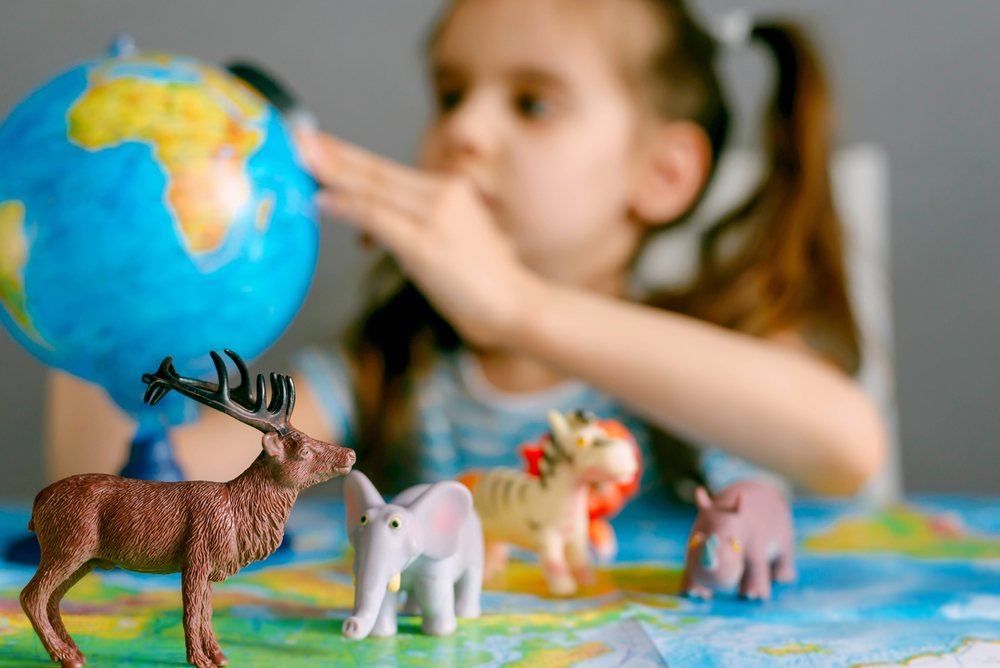Map reading skills Normal Geography Worksheets for Ages 5-9
5 filtered results
-
From - To
Enhance your child's understanding of geography with our engaging map reading skills worksheets, designed specifically for ages 5-9. These printable materials feature vibrant illustrations and age-appropriate content, making learning fun and interactive. Children will explore fundamental concepts such as symbols, directions, and map scales while developing essential skills to interpret various types of maps. Our worksheets facilitate hands-on activities with clear instructions, promoting critical thinking and problem-solving. Ideal for homeschooling or classroom use, these resources empower young learners to navigate the world around them confidently. Encourage your child's curiosity and cognitive development with our captivating geography experience today!
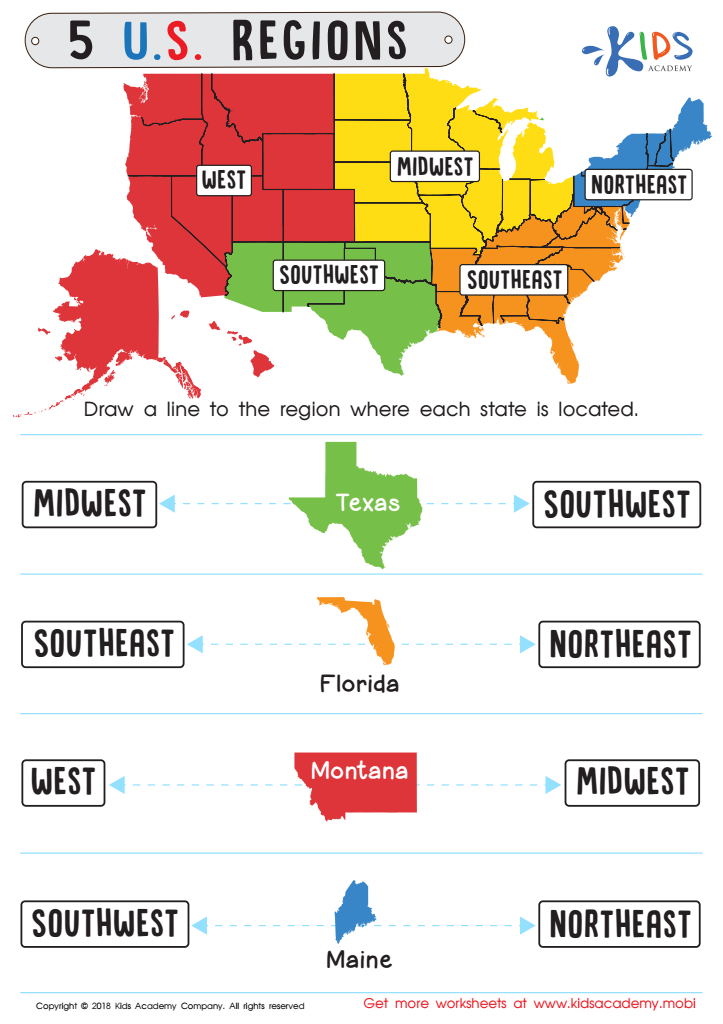

5 U.S. Regions Worksheet
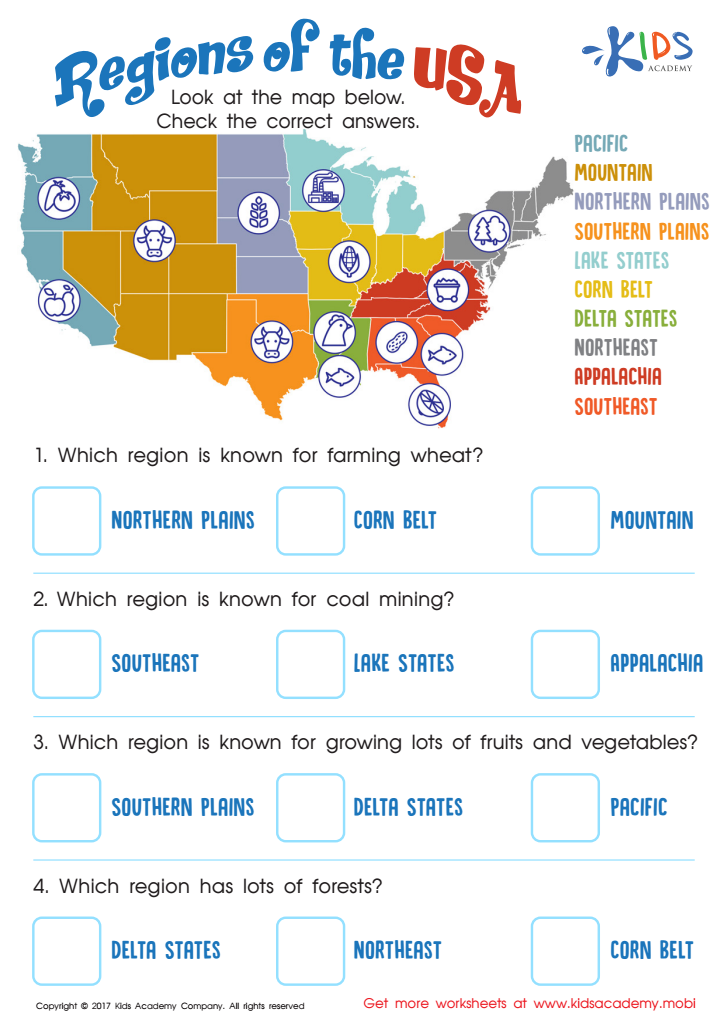

Regions of the USA Worksheet
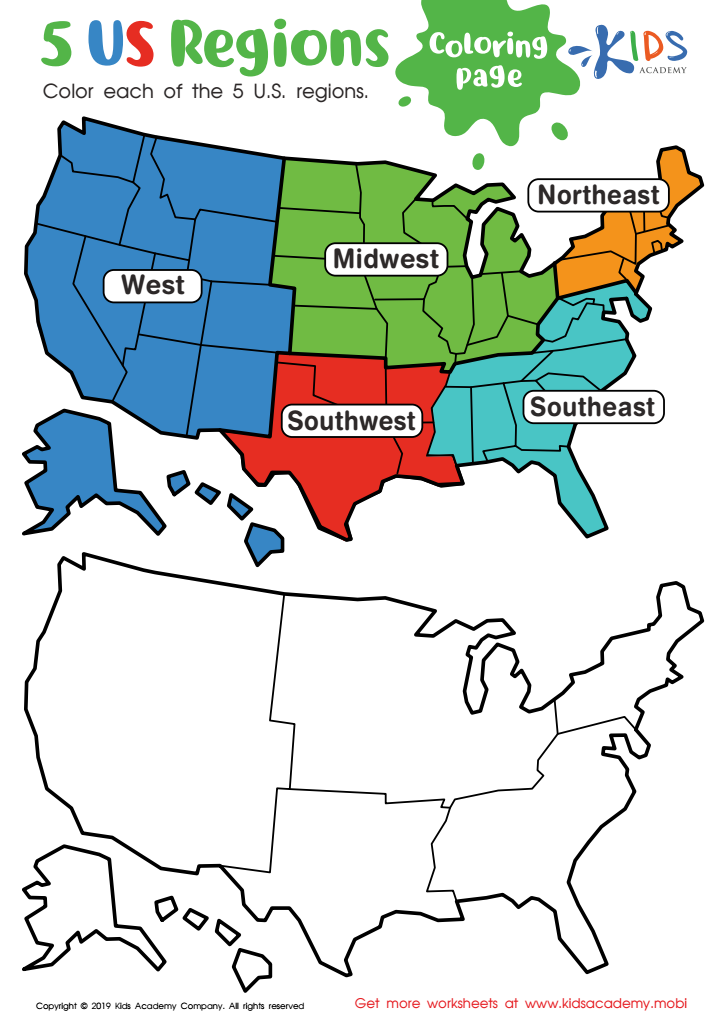

US Regions Coloring Page Worksheet
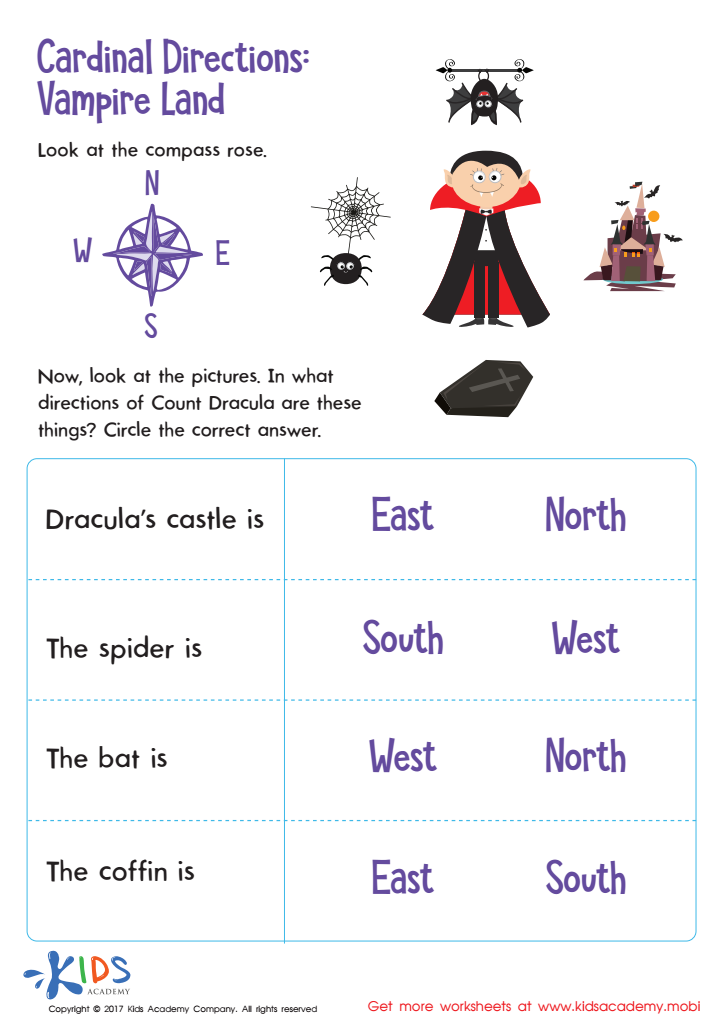

Cardinal Directions Printable
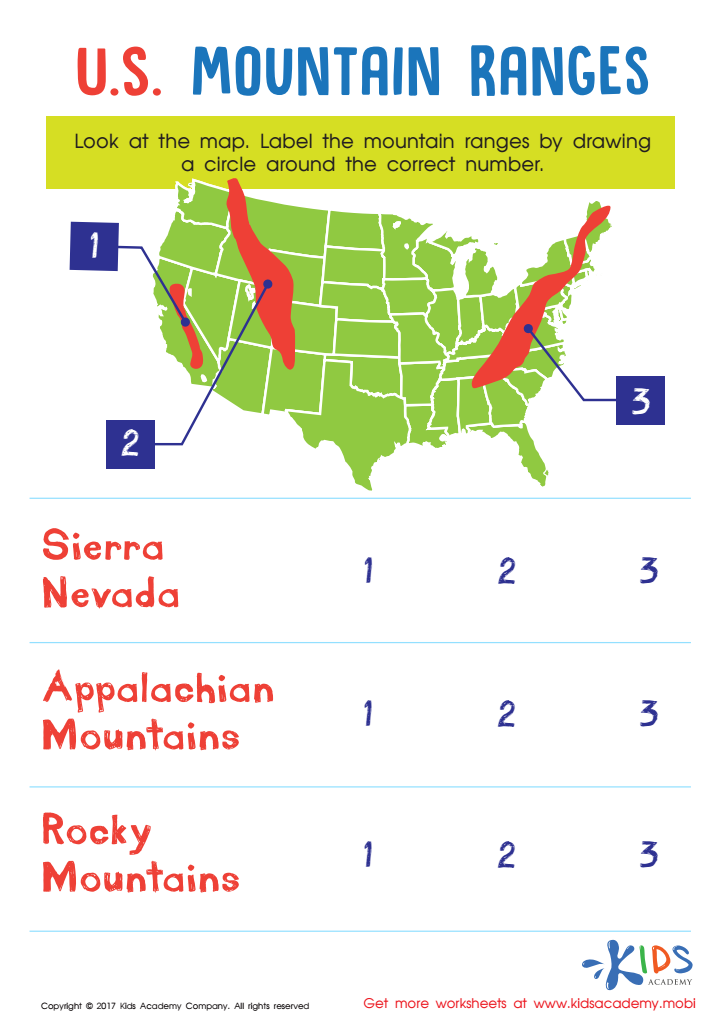

US Mountain Ranges Worksheet
Map reading skills are essential for children aged 5-9, as they form the foundation for geographical understanding and spatial awareness. Parents and teachers should prioritize map reading because it enhances a child's cognitive development, critical thinking, and problem-solving abilities. At this age, children are naturally curious and eager to explore the world around them; learning to read maps allows them to visualize relationships between different locations and understand our environment more clearly.
Furthermore, map reading fosters independence and confidence. When children are equipped with map skills, they're empowered to navigate their surroundings, whether in their local community or during family trips. This self-sufficiency is crucial for building a sense of responsibility and awareness regarding safety and direction.
Incorporating map reading into early education encourages engagement with both natural and social sciences. It serves as a fun, interactive way to teach children about places, cultures, and even history. Early exposure to maps can stimulate an interest in geography, potentially inspiring future educational pursuits and careers in related fields.
Overall, emphasizing map reading not only enriches children’s learning experience but also equips them with valuable life skills. It’s an investment in their intellectual growth and understanding of the world.
 Assign to My Students
Assign to My Students






